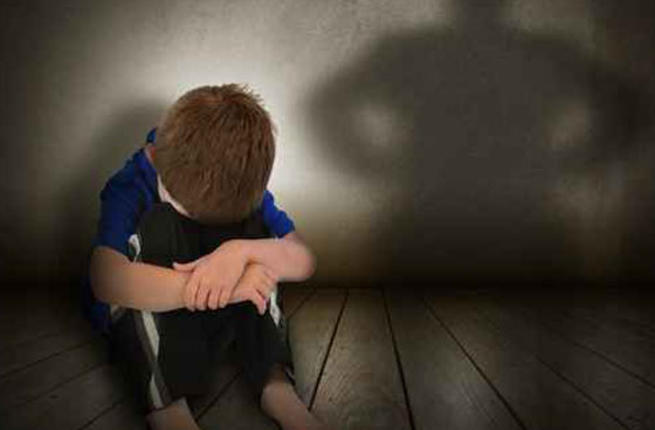"It revealed that for too long the reporting of this abuse was met with indifference and denial by the very adults and institutions who were supposed to protect them," Turnbull told reporters in Canberra.
"Now that we've uncovered the shocking truth, we must do everything in our power to honour the bravery of the thousands of people who came forward."
Turnbull said 104 of 122 recommendations related to the federal government would be adopted, including the establishment of a national office for child safety to report to parliament and develop a unified strategy to prevent child sexual abuse.
He also said that none of the recommendations had been rejected and the government will consider the remainder as well.
One of the key recommendations of the final report in December was the national redress scheme for the abuse victims.
Western Australia, the only state left to join the scheme, said Wednesday it would sign up for the payment to compensate the victims, opening the way for the plan to begin July 1.
Some 60,000 survivors of abuse are eligible for the compensation nationally.
The Catholic Church in Australia, along with a few other key non-government institutions including the Anglican Church, Salvation Army and Scouts, have all promised to enter the national scheme.
The inquiry found that seven per cent of all priests between 1960 and 2015 had allegedly abused children and 62 per cent of victims who reported abuse in a religious institution were from Catholic-man aged institutions.
The details of the redress scheme are still unknown but laws to enforce it are set to pass parliament by the end of the month. The federal government has already set aside 3.8 billion dollars for the scheme.
The maximum redress payment will be about 150,000 Australian dollars (113,000 US dollars), which is lower than the 200,000 maximum payment recommended by the commission, with the average payment expected to be about half of that.
The powerful inquiry heard more than 8,000 testimonies about abuse in schools, churches, sports clubs and defence institutions. It made 409 recommendations in total, including calling on the Catholic Church to change its rules on celibacy.
One of the contentious recommendations was forcing priests to report information revealed to them in the confessional, which the government supports but the Catholic Church opposes.
"There has been no compelling evidence to suggest that legal abolition of the seal of confession will help in that regard," Australian Catholic Bishops Conference president Archbishop Mark Coleridge said on Wednesday.
"Protecting children and upholding the integrity of Catholic sacraments are not mutually exclusive and the Church wants to continue to work with the government to ensure both can be achieved and maintained," he added.
Turnbull said the government expects all states and territories, as well as non-government institutions, to actively respond to each of the recommendations.
He also said they should report on their implementation of relevant recommendations annually in December, as the federal government will for the next five years.
"Where institutions decide not to accept the Royal Commission’s recommendations they should state so and why," Turnbull said.
"Now that we've uncovered the shocking truth, we must do everything in our power to honour the bravery of the thousands of people who came forward."
Turnbull said 104 of 122 recommendations related to the federal government would be adopted, including the establishment of a national office for child safety to report to parliament and develop a unified strategy to prevent child sexual abuse.
He also said that none of the recommendations had been rejected and the government will consider the remainder as well.
One of the key recommendations of the final report in December was the national redress scheme for the abuse victims.
Western Australia, the only state left to join the scheme, said Wednesday it would sign up for the payment to compensate the victims, opening the way for the plan to begin July 1.
Some 60,000 survivors of abuse are eligible for the compensation nationally.
The Catholic Church in Australia, along with a few other key non-government institutions including the Anglican Church, Salvation Army and Scouts, have all promised to enter the national scheme.
The inquiry found that seven per cent of all priests between 1960 and 2015 had allegedly abused children and 62 per cent of victims who reported abuse in a religious institution were from Catholic-man aged institutions.
The details of the redress scheme are still unknown but laws to enforce it are set to pass parliament by the end of the month. The federal government has already set aside 3.8 billion dollars for the scheme.
The maximum redress payment will be about 150,000 Australian dollars (113,000 US dollars), which is lower than the 200,000 maximum payment recommended by the commission, with the average payment expected to be about half of that.
The powerful inquiry heard more than 8,000 testimonies about abuse in schools, churches, sports clubs and defence institutions. It made 409 recommendations in total, including calling on the Catholic Church to change its rules on celibacy.
One of the contentious recommendations was forcing priests to report information revealed to them in the confessional, which the government supports but the Catholic Church opposes.
"There has been no compelling evidence to suggest that legal abolition of the seal of confession will help in that regard," Australian Catholic Bishops Conference president Archbishop Mark Coleridge said on Wednesday.
"Protecting children and upholding the integrity of Catholic sacraments are not mutually exclusive and the Church wants to continue to work with the government to ensure both can be achieved and maintained," he added.
Turnbull said the government expects all states and territories, as well as non-government institutions, to actively respond to each of the recommendations.
He also said they should report on their implementation of relevant recommendations annually in December, as the federal government will for the next five years.
"Where institutions decide not to accept the Royal Commission’s recommendations they should state so and why," Turnbull said.









 Home
Home Politics
Politics











